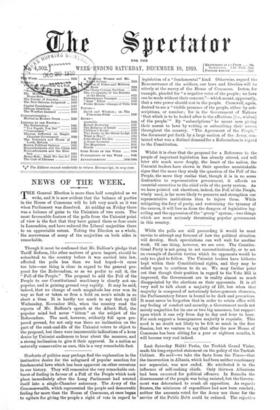Students of politics may perhaps find the explanation in the
instinctive desire for the safeguard of popular sanction for fundamental laws which has been apparent on other occasions in our history. They will remember the very remarkable out- burst of feeling in favour of a Poll of the People which took place immediately after the Long Parliament had erected itself into a single-Chamber autocracy. The Army of the Commonwealth, which represented the people and democratic feeling far more than the House of Commons, at once began , to agitate for giving the people a right of veto in regard to legislation of a " fundamental " kind. Otherwise, argued the Remonstrance of the soldiers, our laws and liberties will be utterly at the mercy of the House of Commons. Ireton, for example, pleaded for " a negative voice of the people ; no laws can be made without their consent,"—which meant, apparently, that a veto power should rest in the people. Cromwell, again, desired to see a "visible presence of the people, either by sub- scriptions, or number; for in the Government of Nations that which is to be looked after is the affections [i.e., wishes] of the people.' " By " subscriptions " he meant men giving their assent to laws by writing or subscribing their names throughout the country. "The Agreement of the People," the document put forth by a large section of the Army, con- tained what was a distinct demand for a Referendum in regard to the Constitution.


























































